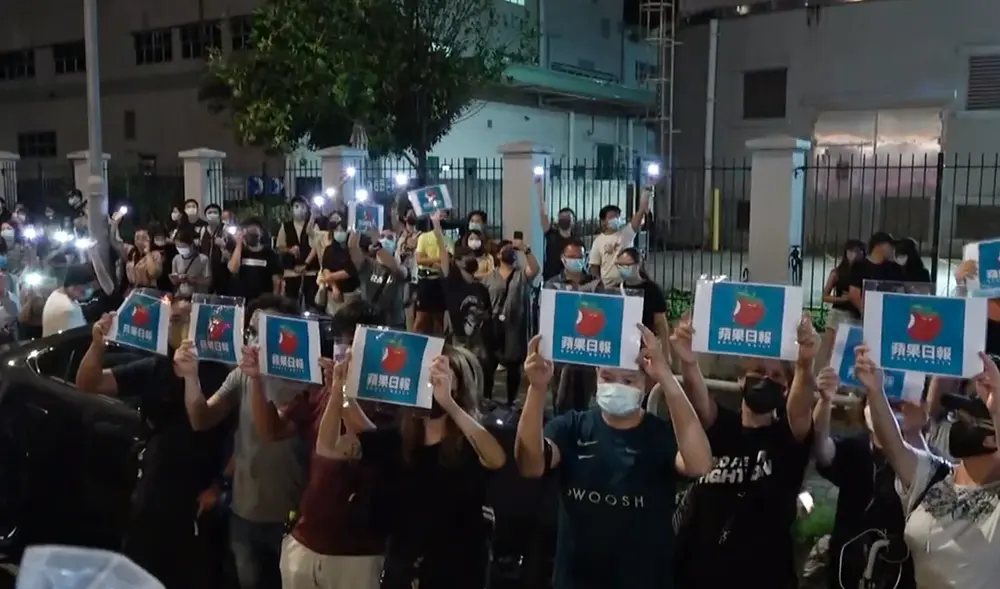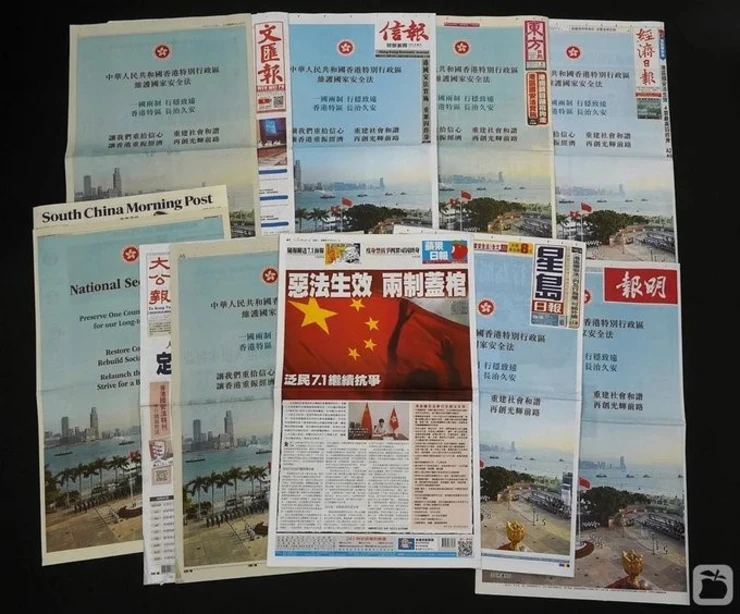The forced closure of Apple Daily and what it means for press freedom in Hong Kong

On June 24, 2021, Hong Kong’s pro-democracy tabloid Apple Daily published its final edition marking the end of its 26 years of history. Thousands of Hong Kongers queued at newsstands to pick up the final edition of the newspaper in bad weather. The newspaper faced imminent closure after the authorities froze its assets.
The newspaper, with its pro-democracy stand, in-depth investigative reporting, rich entertainment, and celebrity gossip, published around 90,000 copies daily in recent years, published 1 million copies on its last day. The newspaper and its online news platforms took up more than half of the market share in Hong Kong. Since the introduction of the National Security Law on July 1, 2020, police in different accusations repeatedly raided the Apple Daily office. Jimmy Lai, the founder of Apple Daily, is now in custody. On June 17, police arrested five Apple Daily top executives and took away computers and press material as evidence. On June 23, one of the chief opinion writers was arrested.
Without computers, many reporters insisted writing with pens and mobile; yet as the company’s HK million (around 1.94 million EUR) bank accounts were frozen by the authorities, it left the newspaper out of liquidity to operate.
The incident raised international concern. US President Joe Biden, European Union, UK Foreign Secretary issued statements on the closure of the daily and pointed out that the law infringed the free-speech protections. These rights were guaranteed by China to the city before the turnover in 1997. The incident is not just the end of one newspaper but marks the new normal of media censorship in Hong Kong. Although Apple Daily’s executives were prosecuted before for different reasons, it was the first time that the government started prosecuting editor and writer. This new approach amplified the chilling effect and put the thousands of content contributors for the media at risk. It is expected that after Apple Daily, the government would target online independent media outlets next.
In addition, the development of prosecutions reflects the unprecedented force on controlling the freedom of expression. The mother company of Apple Daily, Next Media, is still a listed company in Hong Kong. It hired over 2300 staff members in Hong Kong and Taiwan in the years 2019/2020. Yet, the government was quick to freeze the assets of Apple Daily before any court hearings, accusing that dozens of its articles violated the National Security Law. Seven local banks in Hong Kong were warned by police not to conduct any bank operations with Apple Daily-related assets. The incident highlighted the fragility of the Hong Kong finance system in front of the National Security Law. International firms expressed concerns over press freedom and property rights in Hong Kong.
As the last edition was published, the newspaper’s digital content was also inaccessible from June 24 on. In the last two days, netizens flocked to the news platform to back up the contents and shared how the newspaper planted a seed of freedom in their heart. The citizens wish to fight fear with hope.
A story not far from our Brandt School was shared among Hong Kong netizens recently. The ‘Meininger Tageblatt’, a newspaper from the southern part of Thuringia, resumed its publication in 1990, after 54 years of press ban under Nazi and German Democratic Republic rule. That is to say that Hong Kongers understand freedom is not something given, but something one has to constantly fight for.

Front pages from various newspapers in Hong Kong on 1 July 2020, after the implementation of the national security law. Apple Daily is the only media without advertisement on its front page about the establishment of the National Security Law. (Photo credit: Apple Daily)
About the author
Clara Law is a first-year MPP candidate specializing in socio-economic and development policies and Non-Profit management and social entrepreneurship. She holds a bachelor’s degree in Journalism, worked as a reporter and communications officer for INGO in Hong Kong before joining the Brandt School.
~ The views represented in this blog post do not necessarily represent those of the Brandt School. ~